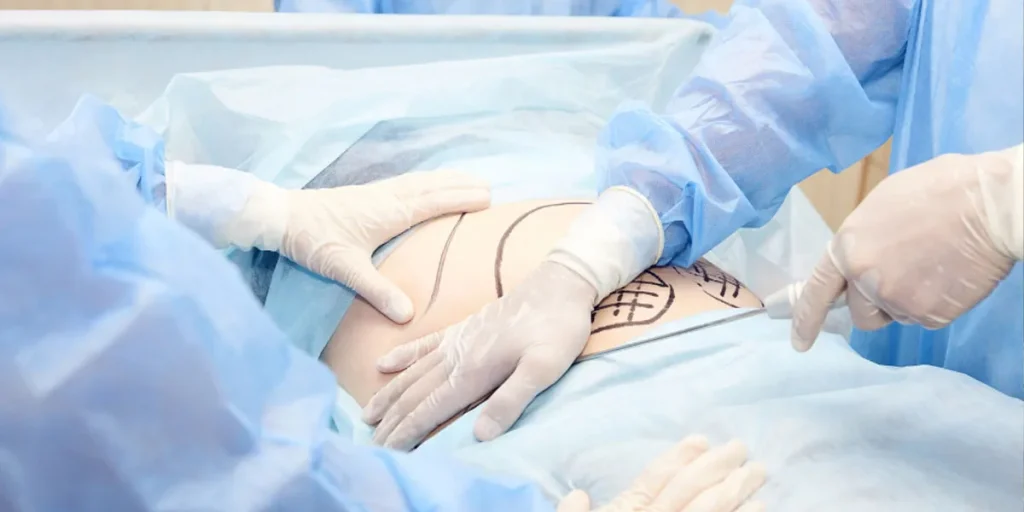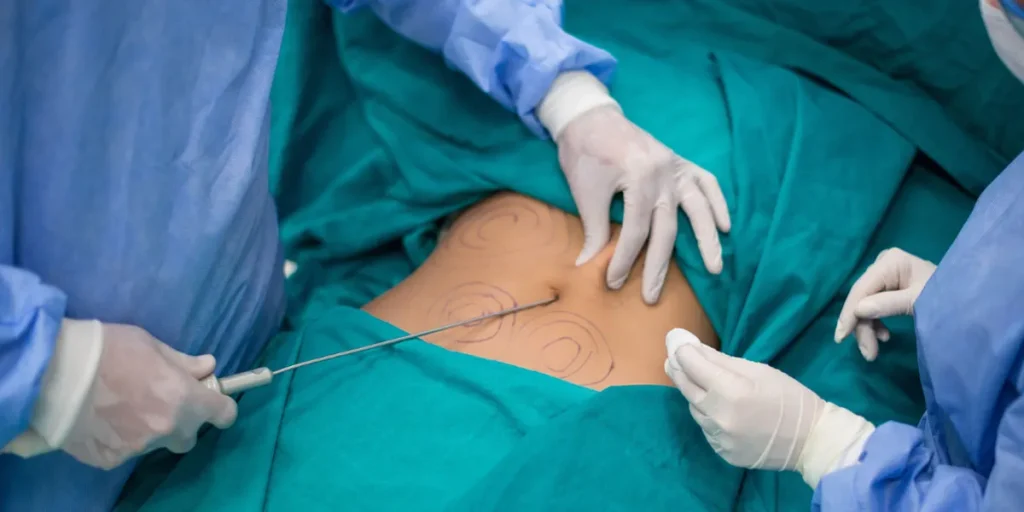There is no specific weight requirement to qualify for liposuction; suitability depends on individual health and body composition. Candidates should have stable weight and localized fat deposits.
Liposuction is a cosmetic procedure designed to remove excess fat from targeted areas of the body, not a weight loss solution.
Ideal candidates are those who maintain a healthy lifestyle, with a diet and exercise routine, but struggle with stubborn fat that does not respond to these efforts.
Having realistic expectations and good skin elasticity can also contribute to the success of the procedure.
It is essential to consult with a board-certified plastic surgeon to evaluate if liposuction is the right option and to ensure it is performed safely and effectively.
Safe candidacy is often more about the patient’s overall health rather than a specific weight on the scale.
Eligibility For Liposuction
Exploring liposuction? Understanding who qualifies is crucial. This body sculpting method isn’t a one-size-fits-all solution.
It’s not about reaching a specific weight. Rather, it’s about shaping your figure. Read on to learn if you’re a candidate for this transformative procedure.
Factors Determining Candidacy
Several factors influence your suitability for liposuction. A good health status is vital. Stable body weight and skin elasticity also play a role.
It’s not just about the numbers on a scale. Below are the key components:
- Overall Health: Free from life-threatening conditions or illnesses.
- Skin Elasticity: The better your skin elasticity, the smoother the outcome.
- Non-smoker: Smoking can compromise surgery success and recovery.
- Realistic Expectations: Understand what liposuction can and can’t do.
Weight Considerations
Weight does factor into eligibility, but not in the way you might think. Surgeons look for candidates within 30% of their ideal body weight.
It’s about fat location, not just total body weight. Look for stubborn fat that doesn’t respond to diet or exercise. Here’s a quick guide:
| Ideal Candidate | Limited Fat Deposits | Close to Target Weight |
|---|---|---|
| Yes | Localized fat pockets | Within 30% of goal |
| No | Overall obesity | Falls outside 30% range |
Liposuction targets specific areas. It is not for overall weight loss. Ideal candidates have a stable weight and want to refine their contours.
Safe Weight Limits For Liposuction

Liposuction is a popular body contouring procedure. It removes unwanted fat. But not everyone is a good candidate.
Your weight plays a big role. You need to be within certain limits. This ensures the procedure is safe.
Bmi And Liposuction Suitability
Your Body Mass Index (BMI) matters. It measures body fat based on height and weight. A healthy BMI ranges from 18.5 to 24.9.
Candidates for liposuction should have a BMI under 30. This is key for safety and best results.
- BMI under 30 is preferred
- BMI over 30 may face higher risks
- Results are better with a healthy weight
Maximum Fat Removal Guidelines
The American Society of Plastic Surgeons set guidelines. For a single procedure, the safe limit is about
| Amount of Fat | Safe Limit |
|---|---|
| 5 liters | 11 pounds |
Removing more fat increases risks. Always work with a certified surgeon. They will make sure your liposuction is safe.
Misconceptions About Weight And Liposuction

Many believe that liposuction is a shortcut to weight loss.
This is not true.
Liposuction targets fat deposits that don’t go away with diet and exercise. It’s not a weight-loss method.
Liposuction As Weight-loss Method
Liposuction removes fat, but not a significant amount of weight. It’s for body contouring.
Folks often think they need to be overweight for liposuction. Not the case! Candidates should be near their ideal weight with stubborn fat areas.
The Truth About Fat Reduction
Liposuction is about shape, not scale numbers. It reduces fat cells in specific areas. This creates a smoother contour.
It’s not for overall weight loss. The best candidates maintain a stable weight before and after the procedure. Good skin elasticity is important too.
- Ideal candidate: Near target weight with stubborn fat
- Not for: Large-scale weight loss
- Focus: Reducing fat in target areas
- Goal: Better body contour, not lower weight
Preparing For Liposuction
An essential phase before embarking on your liposuction journey is the preparation process. To optimize results, both physical and mental readiness are vital.
Ensuring you’re thoroughly prepared guarantees a smoother procedure and recovery. Let’s delve into the key steps involved in liposuction preparation.
Reaching A Stable Weight
Attaining a consistent weight is crucial for liposuction candidates. This cosmetic procedure is not a weight-loss solution.
Instead, it targets stubborn fat areas that remain after diet and exercise. A stable weight helps maintain post-surgery results and enhances recovery. Here are some tips to achieve a stable weight:
- Adopt a nutritious diet to fuel your body with the right foods.
- Engage in regular exercise to solidify your fitness routine.
- Avoid major weight fluctuations for the best surgical outcomes.
Preoperative Assessments
Comprehensive medical evaluations ensure your readiness for liposuction. They highlight any potential health concerns that could affect the surgery. Health check-ups might include:
- Blood tests to check for any underlying conditions.
- Physical examination to assess targeted areas for liposuction.
- Medical history review to identify allergies or medications that could interfere with the procedure.
All this data contributes to a custom-tailored surgery plan. Your surgeon will also provide detailed instructions to follow before the day of surgery.
Adhering to these guidelines is imperative for your safety and the success of your liposuction.
Post-liposuction Weight Management
After liposuction, keeping your new shape is key. It’s not just about the procedure itself but also how you manage your weight afterwards.
Liposuction gives you a head start by removing fat cells, but it’s your lifestyle that keeps these results in the long run.
Maintaining Results
Right after liposuction, your body needs care. This means wearing compression garments, attending follow-up appointments, and listening to your doctor’s advice.
Once healed, the real challenge begins: keeping the weight off. Your body can still gain fat, just in different places.
Regular exercise and mindful eating become your best tools to maintain your liposuction results.
Lifestyle Changes And Diet
Lifestyle changes are crucial for weight management post-liposuction. Start with small, realistic goals to keep weight gain at bay.
A balanced diet rich in veggies, fruits, lean proteins, and whole grains will do wonders. Don’t forget to hydrate! Water is your ally in keeping hunger checks and boosting metabolism.
Regular exercise is non-negotiable. Incorporate both cardio and strength training into your routine.
Aim for at least 150 minutes of moderate activity each week. This will help tighten and tone your body.
- Choose whole foods over processed ones
- Cut down on sugar and high-fat foods
- Stick to portion control
Remember, recovery varies and so do individual weight management strategies. Consult with a nutritionist or personal trainer for personalized guidance.
Potential Risks With Excessive Fat Removal
Liposuction is a popular cosmetic procedure. It aims to remove unwanted fat pockets. It’s essential to understand the procedure is not a weight-loss tool.
It shaves off those last stubborn inches. Liposuction has limits. Too much fat removal can lead to risks and complications. Let’s explore these risks in detail.
Complications From Overextraction
Removing too much fat during liposuction can have serious consequences. These include contour irregularities, lumpiness, and loose skin.
The body may react poorly if pushed beyond its natural limits. Overextraction can lead to bleeding, infection, and prolonged swelling.
Worst cases involve organ perforation or fat embolism. These are life-threatening conditions. They can occur if too much fat is abruptly taken out.
Importance Of Choosing A Qualified Surgeon
Selecting the right surgeon is crucial for a safe liposuction procedure. Ensure your surgeon is board-certified.
They should have extensive experience in liposuction. Patients should verify the surgeon’s track record. Check for past complications and successful outcomes.
Certification means training and adherence to safety protocols. Experienced surgeons know the safe limit of fat removal.
They tailor the procedure to an individual’s health and body goals. This minimizes the risk of complications.
Surgeons should communicate realistic outcomes with the patient. This ensures expectations are aligned with what is medically safe.
FAQ About the Weight Required for Liposuction
Is There A Weight Limit For Liposuction?
No, there is no strict weight limit for liposuction. However, ideal candidates are within 30% of their target weight.
Surgeons recommend being close to your ideal weight to ensure the best results.
Liposuction is not a weight-loss method but a body contouring procedure.
Can Obese Individuals Get Liposuction?
Obese individuals may undergo liposuction, but it comes with increased risk.
Liposuction is typically most effective for those with stable weight who seek to remove specific fat deposits.
It is important to have realistic expectations about the outcome.
How Much Weight Can You Lose With Liposuction?
Liposuction removes localized fat deposits, not overall weight. Patients don’t “lose” weight but can expect to lose inches for a more contoured shape.
The amount of fat removed varies, with a safe limit of about 5 liters or 11 pounds.
What’s The Ideal Bmi For Liposuction?
An ideal BMI for liposuction is not firmly established, but candidates are often near their ideal body weight.
A BMI under 30 is typically preferred for safety and optimal results. Each patient is evaluated individually to determine their suitability for the procedure.
Conclusion
Determining your eligibility for liposuction isn’t just about weight—it’s about health and realistic expectations.
Consult with a certified surgeon to know if liposuction fits your body goals. Remember, a stable weight close to your ideal is key for the best results.
Start your journey informed and confident.
Resources:
https://medlineplus.gov/ency/article/002985.htm
https://www.betterhealth.vic.gov.au/health/conditionsandtreatments/liposuction
